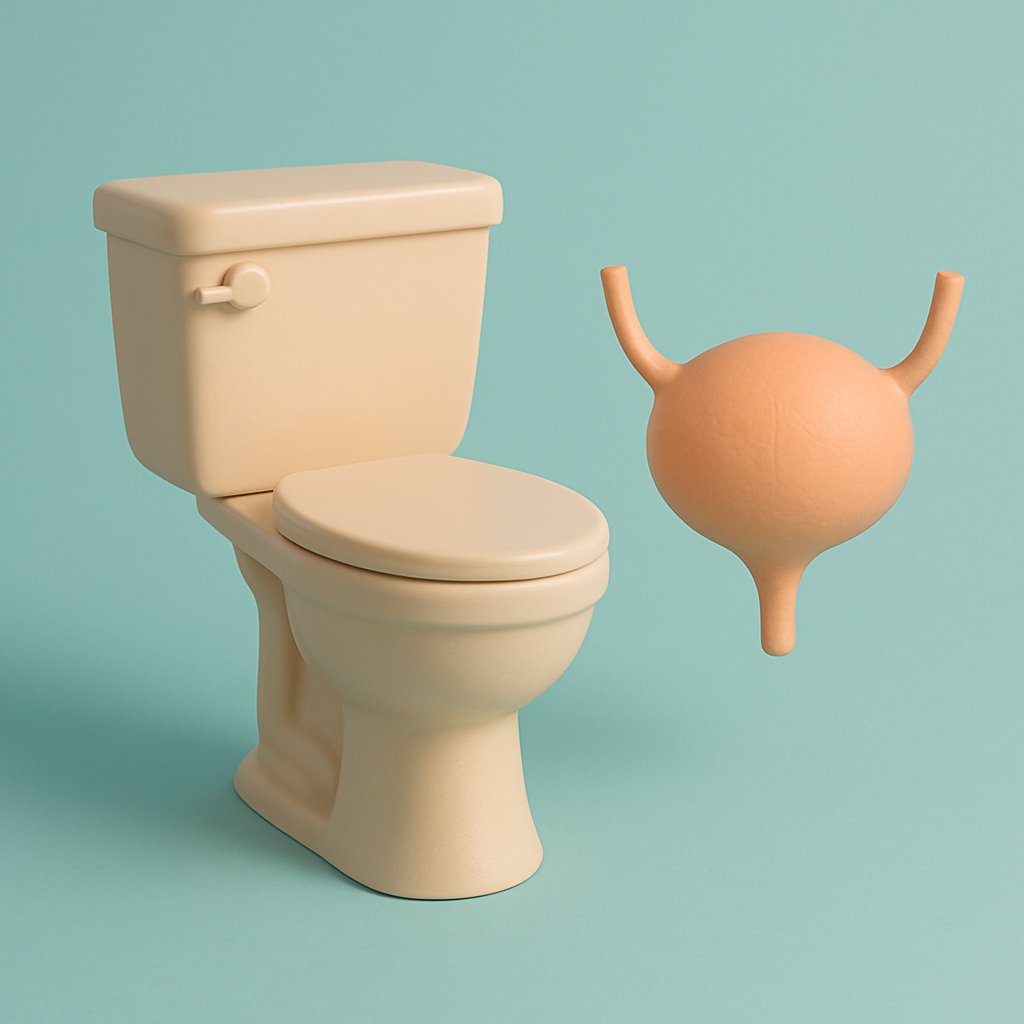Your bladder plays a vital role in removing waste from your body. Yet, it’s often neglected until problems arise. Practicing healthy toileting habits can make a significant difference in preserving your bladder’s function and comfort over the long term. Whether you’re in your 20s or your 60s, it’s never too early—or too late—to start making smart choices.
Here are key habits that support long-term bladder health.
1. Don’t Hold It Too Long
Frequently delaying urination can overstretch the bladder muscles and affect how your bladder functions over time. It may also increase the risk of urinary tract infections (UTIs). Ideally, you should urinate every 3 to 4 hours during the day. If you often ignore the urge to go, try setting gentle reminders or planning bathroom breaks during busy days.
2. Don’t Go “Just in Case”
While it might seem like a good idea to use the bathroom “just in case,” especially before leaving home, this habit can actually train your bladder to signal the need to go at smaller volumes. This may lead to increased urinary frequency or urgency. Instead, try to wait until you genuinely feel the need to go.
3. Sit, Don’t Hover
Many people hover over public toilet seats, but this position can prevent your pelvic floor muscles from fully relaxing. Incomplete relaxation can lead to incomplete bladder emptying, which increases the risk of infections and over time can affect bladder function. When possible, sit down and take your time.
4. Relax When You Pee
Straining or rushing while urinating puts unnecessary pressure on your bladder and pelvic floor. Take a few moments to breathe, relax your abdomen and pelvic area, and allow your urine to flow naturally. This helps ensure complete emptying and reduces stress on your urinary system.
5. Stay Hydrated, But Not Overhydrated
Drinking enough water supports bladder and kidney function, helps flush toxins, and reduces the risk of UTIs. A general guideline is to aim for 6 to 8 cups of fluid a day, but this may vary depending on your age, activity level, and environment. Too much fluid can lead to frequent urination, while too little can cause concentrated urine that irritates the bladder.
6. Avoid Bladder Irritants
Certain foods and beverages, like caffeine, alcohol, spicy foods, citrus, and artificial sweeteners, can irritate the bladder in some people. If you notice increased urgency or discomfort after consuming these, try eliminating them to see if your symptoms improve.
7. Practice Pelvic Floor Exercises
Strong pelvic floor muscles support your bladder and can help prevent issues like incontinence. Pelvic floor exercises, commonly known as Kegels, are simple and can be done almost anywhere. If you’re unsure how to perform them correctly, consult a healthcare provider or physical therapist for guidance.
8. Maintain a Healthy Weight
Excess weight puts additional pressure on the bladder and surrounding muscles, which can lead to incontinence and other bladder problems. Regular physical activity and a balanced diet can help you maintain a healthy weight and support overall bladder health.
9. Seek Help When Needed
If you’re experiencing symptoms like frequent urination, pain during urination, incontinence, or sudden urges to go, don’t ignore them. Early evaluation and management can prevent minor issues from becoming long-term problems.
Conclusion
Good bladder health doesn’t require drastic changes—just mindful, consistent habits. By tuning into your body, listening to natural urges, and supporting your bladder with healthy routines, you can greatly reduce your risk of urinary problems as you age.
Your bladder works hard for you every day. Treat it well, and it will return the favor.

